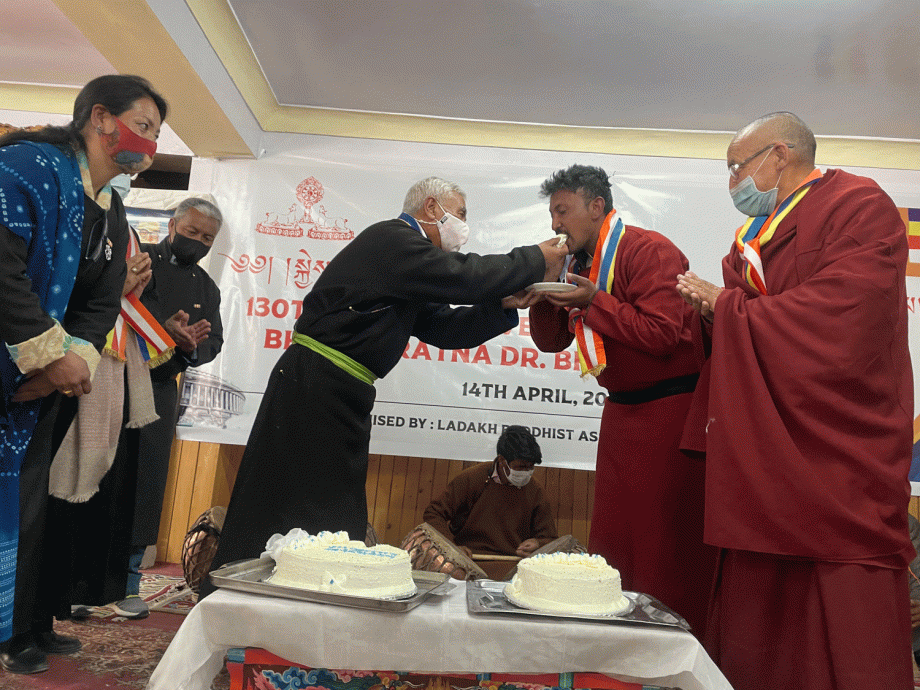Caste-based inequality still a social reality The discrimination is still in practice, but I am sure that could be abolished by changing people’s attitude, says Nominated Councillor, Phuntsog Nurboo

Caste-based inequality has lived the reality in Ladakh. Certain sections of society are victims of many violations which is neither appropriate in culture nor relevant in religion.
Buddhism preaches the benefit of all sentient beings but when we alienate and discriminate people based on their occupation aren’t we contradicting ourselves to be called the followers of Buddha? While preaching to the devotees at the Zanskar Photang in the year 2017, His Holiness the 14th Dalai Lama said, “In Buddhism, Buddha stands against caste system before 2600 years ago. It is against the Buddha and the Dalai Lama if you still continue to practice the caste system.”
He further added that no religion speaks of discriminating against one person or the other, just because they are from the low class. All religions preach only love.
Phuntsog Nurboo, Nominated Councillor said, “After assuming charge of nominated councillor, I came across few incidents which are very unfortunate. The discrimination is still in practice but, I am sure that it will be abolished completely with the change in people’s attitude”.
“The attitude of new generations is different, which is a hint that we are moving towards an inclusive society. Recently on Ambedkar Jayanti, I was honoured as a chief guest by the LBA Youth Wing which is a history in itself”, he added.
He said that education is the only weapon to bring change.
His Holiness gesture of embracing, playing the musical instruments, and teaching to condemn the caste system has somehow brought a wave of change over the few years. The practice of not allowing them to eat and drink from the same utensils providing separate cups and glasses at the village gatherings or ceremonies is improved.
Venerable Shedup Chamba, President, All Ladakh Gonpa Association said, “It is very unfortunate that the caste system is practiced in our society. The condition has somehow improved now as compared to earlier times. Today we all sit and eat together, which is a good sign.”
He said that the younger generation can play a bigger role to eliminate such evil practices as it is difficult to convince the older generation due to lack of education.
A traditional musical instrument such as Daman and Surna plays an important role in the culture and tradition of Ladakh. They are the artist whose contributions to cultural preservation and protection are immense but are often look down on, abused, or discriminated against at all levels. Social taboo and stigma attached to it have compelled many of them to give up their profession because of the lack of dignity.
Tsewang Paljor, Special Officer, Ladakh Art, Culture and Languages Academy said, “Imagine our society without Surna and Dhaman, how our songs and culture would be? The contribution of traditional musical instrument players in our culture is immense. Today we feel proud of our rich culture, but we forget to recognize their contributions.”
The good thing is that the mindset of the young generation is different as they see all these skills and art as education. New generations are opting for this art which is very fortunate, he added.
On the occasion of the 130th birth anniversary of Dr. Bhim Rao Ambedkar, Thupstan Chhewang, President, LBA at Chowkhang Vihara said, “We have to discuss how this caste system originated in our society and understand the reason behind it to uproot such evil practices. Though it is a difficult task we have no option except to abolish it.”
He further assured that the LBA will deliberate on the issue with Gonpa Association and various experts from Ladakh to uproot the system from the society.
The constitution of India also guarantees, "Prohibition of discrimination on grounds of religion, race, caste, sex or place of birth" under Article 15. Thus, the discriminatory practice is not legal also.





